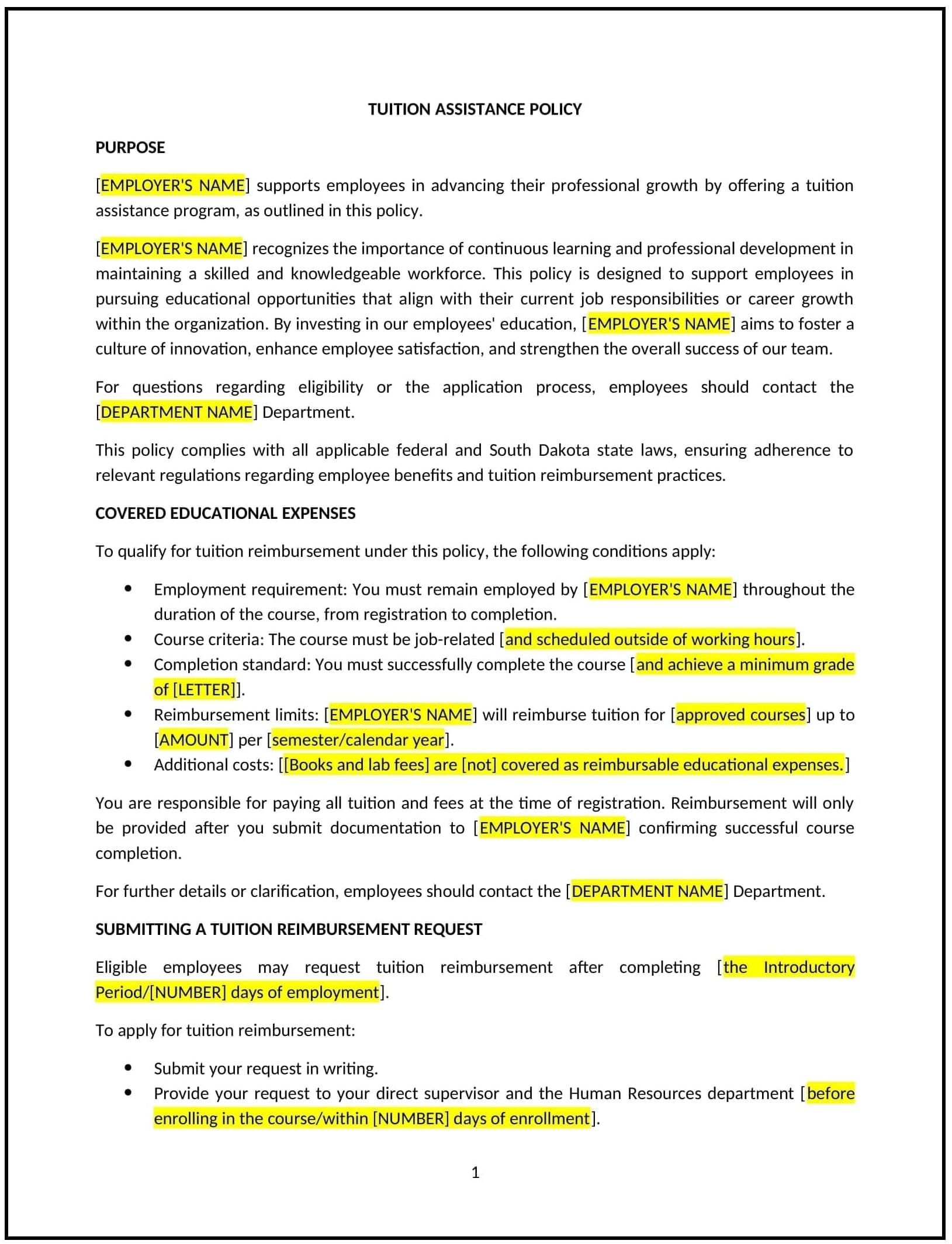Tuition assistance policy (South Dakota): Free template
Got contracts to review? While you're here for policies, let Cobrief make contract review effortless—start your free review now.

Customize this template for free
Tuition assistance policy (South Dakota)
This tuition assistance policy is designed to help South Dakota businesses establish guidelines for providing financial support to employees pursuing further education. It outlines eligibility criteria, covered expenses, and expectations for employees who receive tuition assistance.
By adopting this policy, businesses can support employee development, enhance skill sets, and align with general best practices for workforce investment.
How to use this tuition assistance policy (South Dakota)
- Define eligibility: Specify which employees are eligible for tuition assistance, such as full-time employees or those with a minimum tenure.
- Outline covered expenses: Explain what expenses are covered, such as tuition, fees, books, or course materials.
- Set performance expectations: Include requirements for employees to maintain a certain GPA or complete courses successfully to continue receiving assistance.
- Establish repayment terms: Address whether employees must repay tuition assistance if they leave the company within a specified period.
- Provide application procedures: Outline the steps employees must follow to apply for tuition assistance, including deadlines and required documentation.
- Train managers: Educate supervisors on handling tuition assistance requests and supporting employees’ educational goals.
- Review and update: Assess the policy annually to ensure it aligns with evolving business needs and employee development goals.
Benefits of using this tuition assistance policy (South Dakota)
This policy offers several advantages for South Dakota businesses:
- Supports employee growth: Encourages employees to pursue further education, enhancing their skills and knowledge.
- Boosts retention: Demonstrates a commitment to employee development, increasing loyalty and job satisfaction.
- Aligns with best practices: Shows a commitment to investing in the workforce and staying competitive in the industry.
- Enhances productivity: Equips employees with new skills that can improve job performance and innovation.
- Reduces recruitment costs: Helps develop internal talent, reducing the need for external hiring.
Tips for using this tuition assistance policy (South Dakota)
- Communicate the policy: Share the policy with employees and include it in the employee handbook.
- Provide training: Educate managers on handling tuition assistance requests and supporting employees’ educational goals.
- Monitor compliance: Regularly review tuition assistance applications and outcomes to ensure adherence to the policy.
- Address issues promptly: Take corrective action if employees fail to meet the policy’s expectations or misuse the program.
- Update regularly: Review the policy annually to ensure it aligns with evolving business needs and employee development goals.